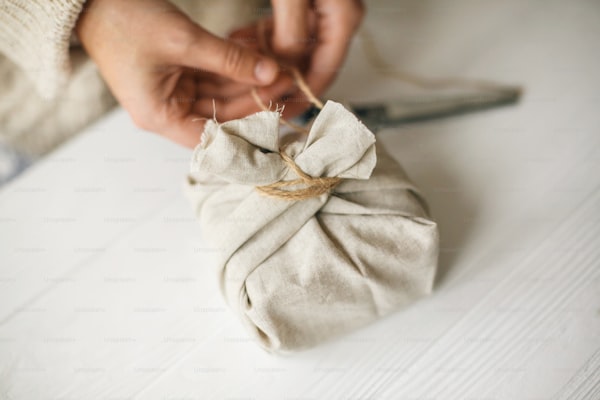The Ultimate Guide to Bridal Couture Fabrics: Choosing the Perfect Material for Your Dream Dress
The Ultimate Guide to Bridal Couture Fabrics: Choosing the Perfect Material for Your Dream Dress
Understanding Bridal Couture Fabrics
When it comes to creating a stunning wedding gown, the choice of fabric is just as important as the design. Bridal couture fabrics play a crucial role in achieving the perfect look, feel, and flow of the dress. This guide will explore various types of bridal couture fabrics, their unique properties, and how to select the best materials for your dream wedding dress.
What Are Bridal Couture Fabrics?
Bridal couture fabrics refer to high-quality materials specifically used in the construction of luxurious, designer Wedding gowns. These fabrics are often characterized by their exquisite texture, intricate detailing, and premium quality, elevating the overall aesthetic of the bridal wear.
Types of Bridal Couture Fabrics
Understanding the different types of bridal couture fabrics is essential for making an informed choice. Below are some of the most popular fabrics used in bridal couture:
| Fabric | Description | Best For |
| Silk | A luxurious and smooth fabric, known for its natural sheen and drapability. | Elegant, flowy designs and gowns with a romantic style. |
| Chiffon | A lightweight, sheer fabric that offers a soft and airy look. | Layering, overlays, and ethereal designs. |
| Organza | A thin, crisp fabric that provides structure while maintaining transparency. | Structured silhouettes and voluminous skirts. |
| Lace | A delicate fabric with intricate patterns, often used for overlays or accents. | Vintage-inspired or romantic looks. |
| Taffeta | A crisp, slightly shiny fabric, known for its durability and structured designs. | Ball gowns and formal bridal attire. |
| Satin | A soft, luxurious fabric that has a glossy surface on one side and a dull finish on the other. | Classic bridal gowns with a sophisticated finish. |
Choosing the Right Fabric for Your Wedding Dress
Choosing the right bridal couture fabric can be overwhelming given the plethora of options. Here are some factors to consider:
1. Style of the Wedding Dress
The first step in selecting the right fabric is to consider the style of the wedding dress. For example, if you're envisioning a fairy-tale ball gown, fabrics like taffeta or organza may be ideal. Alternatively, for a sleek, modern look, silk or satin could be more appropriate.
2. Season and Venue
Consider the season and venue of your wedding when selecting fabric. For summer weddings, light and breathable fabrics like chiffon or lace are preferable, while heavier fabrics like satin or taffeta may be better suited for winter ceremonies.
3. Comfort Level
Your comfort is paramount on your special day. Ensure that the chosen fabric feels good against your skin and allows for ease of movement. Schedule a fitting to see how different fabrics drape on your body.
4. Budget
Bridal couture fabrics can vary significantly in price. Determine your budget ahead of time to avoid overspending. While luxury fabrics can elevate your gown, there are also affordable alternatives that still offer beauty and elegance.

Embellishments and Pairing Fabrics
In addition to choosing the main fabric, consider how different fabrics can be combined to enhance the overall look. For instance, pairing a satin bodice with an intricate lace overlay can create an elegant contrast. Additionally, you can incorporate embellishments such as beading or embroidery for added visual interest.
Maintaining Your Bridal Couture Fabrics
Once you’ve selected the perfect fabric, it’s important to understand how to care for it to ensure that it looks beautiful on your wedding day. Here are some tips:
1. Cleanliness
Keep your gown in a clean, dry place to avoid any stains or damage. It’s advisable to have your gown professionally cleaned after the wedding to preserve the fabric.
2. Storage
Store your wedding dress in a breathable garment bag away from direct sunlight to prevent fading. Some fabrics, such as silk, can require special care in storage due to their delicate nature.
3. Avoiding Moisture
Moisture can lead to mold and mildew on fabric like lace or chiffon, so keep your gown in a dry environment. If your wedding is outdoors, have a plan to protect your dress from unexpected weather changes.
Frequently Asked Questions About Bridal Couture Fabrics
Below are some common questions and answers related to bridal couture fabrics:
1. What is the most popular fabric for Wedding gowns?
Satin and lace are among the most popular choices for Wedding gowns due to their luxurious appearance and versatility.
2. How can I ensure the fabric matches my wedding theme?
Consider the color palette and overall aesthetic of your wedding when selecting fabrics. Samples can help you visualize how the fabric will look alongside wedding decorations and floral arrangements.
3. What should I do if I have fabric allergies?
If you have fabric allergies, consult with your designer about hypoallergenic options. Cotton and silk-blend fabrics may be suitable alternatives to avoid irritation.
Conclusion
Selecting the right bridal couture fabrics is a fundamental step in creating your dream wedding dress. By considering the gown's style, season, comfort, and budget, you can make informed choices that reflect your vision. Don't hesitate to explore various options, and remember that the perfect fabric can transform a beautiful design into a breathtaking masterpiece.
In conclusion, the fabric you choose will not only affect the look of your gown but also your comfort on your special day. Always communicate with your designer about any specific needs you have, whether it's regarding fabric allergies or comfort preferences. The right bridal couture fabric can make your wedding day not only beautiful but also enjoyable, allowing you to dance the night away with confidence!
